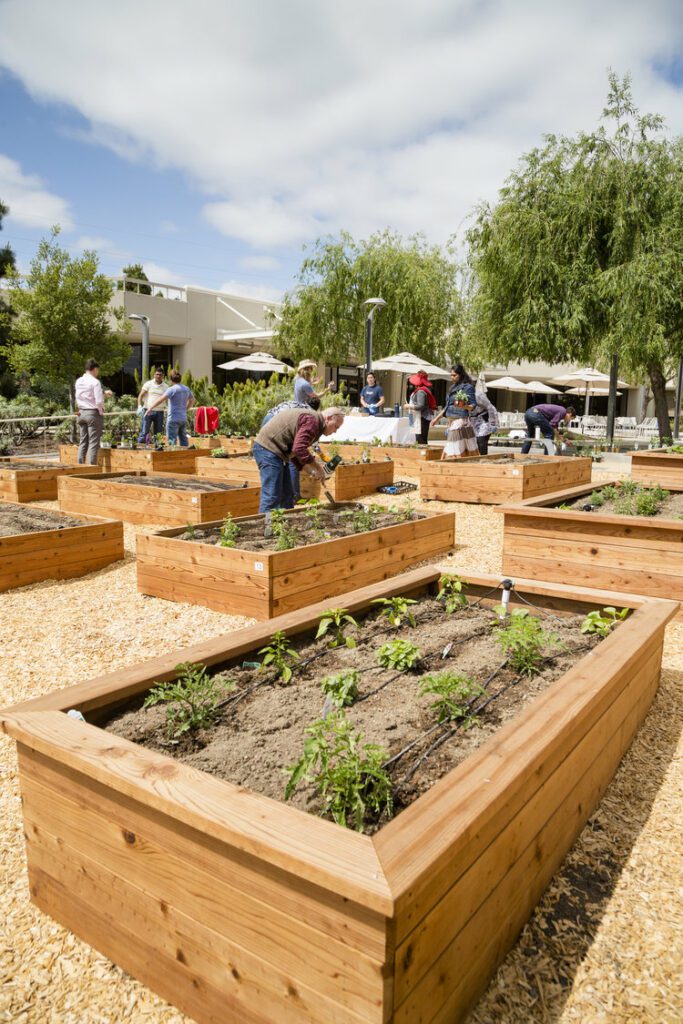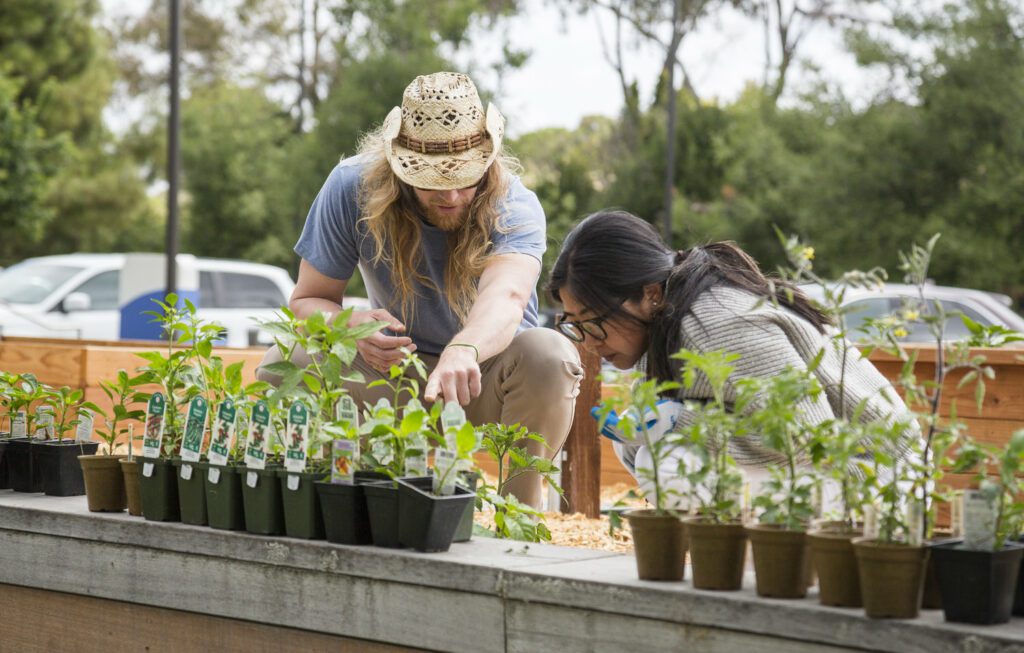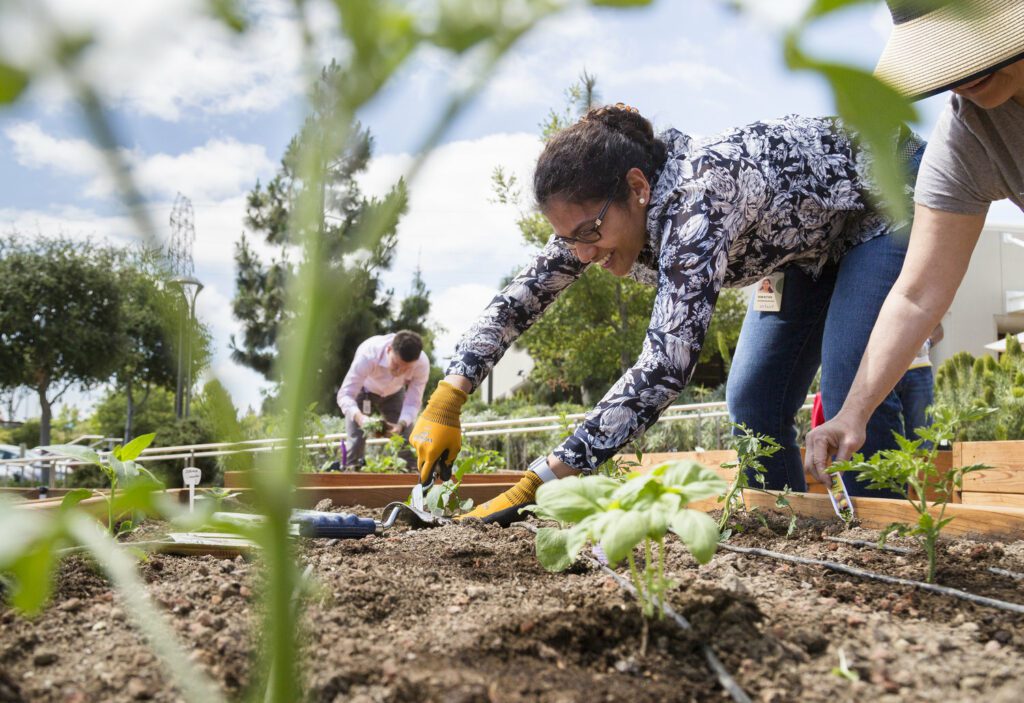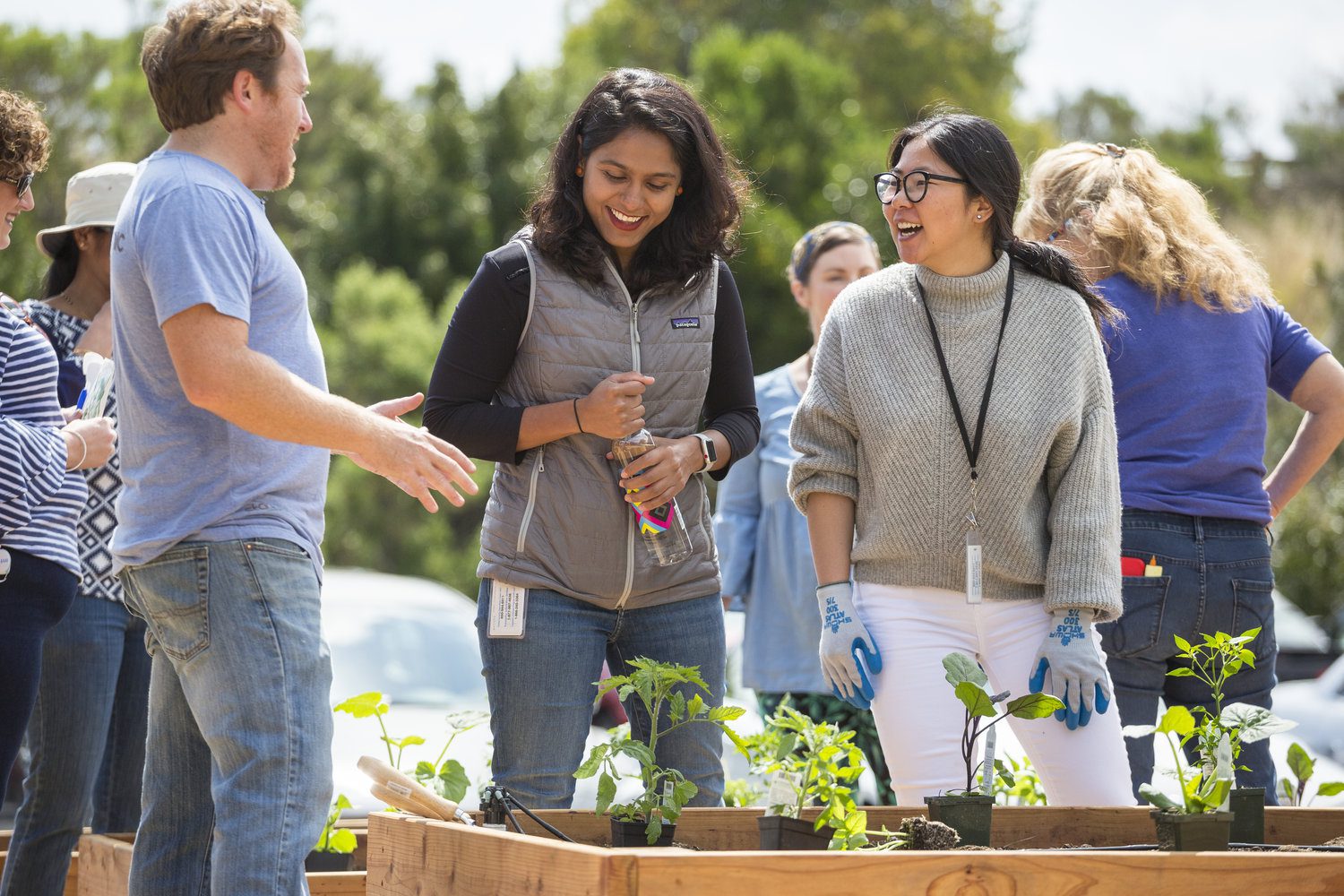Combined with the global need for increased sustainability, StartOrganic’s gardening program offers an opportunity for talent leaders to help address the mental health effects of the pandemic and provide employees with a valuable escape in the new world of work.

Based in San Jose, California, StartOrganic was founded in 2010 by Josh Levine and Troy Smothermon with the goal to better connect people with their food and emphasize the importance of sustainability. Initially designing and helping thousands of gardens in the backyards of the Bay Area, StartOrganic eventually expanded into maintenance and education gardening programs with major companies such as Apple, LinkedIn, Intuit and Hewlett Packard Enterprise (HPE) to help more people grow food and reconnect with the Earth.
“I knew growing food wasn’t that crazy. If you do it right, have a good setup, it’s not that hard,” says Josh Levine, co-founder of StartOrganic. “Let’s just try to see if we can make this more of a normal thing for everyone.”
As a result of the pandemic, StartOrganic has expanded the reach of its programs and taught more people about the importance of sustainability and gardening locally. Levine says they’re now more flexible than ever and can provide companies with gardening and sustainability programs that impact the workplace and beyond.
Growing engagement
When the pandemic hit more than two years ago, StartOrganic was already in the process of shifting material online, with biweekly webinars for employees to grow their own food from the comfort of their homes. As hybrid and remote work becomes the new standard and mental health comes more into focus, well-designed wellness programs have become a crucial way to reduce the increased anxiety of the last two years.
StartOrganic’s gardening program is helping to reduce stress among 92 percent of its participants. The program’s focus on the basics of gardening also gives employees the knowledge and ability to add to their own mental health tool kit, Levine says.
The program also works to build company culture and connectivity among employees. An overwhelming 98 percent of StartOrganic employee participants report having an improved opinion on their company due to the success of the gardening program and improved company culture.
“We’re always looking for ways to make our company feel less spread out,” says Holly Greer, global wellness program manager at HPE. “One of those ways is to always think of things that are globally reaching, and StartOrganic was just such a cool way to initiate that. Anybody in the northern or southern hemisphere could connect with it and feel good about what they’re growing.”

Beyond company culture and mental health improvements, Levine says participants in the StartOrganic program find themselves eating better simply because they’re growing foods they might not usually buy at the store, and eating fresh, organic food instead.
Employees who engage with the StartOrganic program are “way more involved” and engaged with each other on the progress of their gardens, says Levine. In fact, 46 percent of participants in the program say it was their favorite program offered by their company. “Our retention rate within StartOrganic is really high,” says Greer. “Our focus is always just making sure people know about the program, getting new people to step into the door because they’re the ones that once they get in, they’re gonna love it.”
Blooming virtually
Moving beyond the Bay Area, StartOrganic’s program works in climates from coast to coast and around the world. In winter months, the program covers topics such as fruit trees and honeybees, the benefits of local food on humans and the environment, canning and preserving food and giving people the information they need to gather a complete picture of maintaining and optimizing a garden.
StartOrganic’s gardening program provides users with gardening as a tangible life skill, with 92 percent of participants feeling confident in their ability to apply their gardening knowledge at home. “If you take a year of our classes, you’re going to know how to do it forever,” says Levine.
Serving global teams, StartOrganic put together some universal gardening tips that people worldwide can find accessible. “The hybrid approach to [the program] is actually going to be better in the long run,” says Levine. “Because people will have this information they can look up whenever they want at home or work.”
The pandemic is allowing StartOrganic to provide “more information than we could have given before” and “expand in a way we never thought we could,” says Levine. “I never thought I’d be teaching people in Japan about gardening.”

Organizations that use StartOrganic’s hybrid program content also receive Levine and Smothermon’s support; many teams even have internal chats with the co-founders themselves. At HPE, “Troy comes on, and he’ll comment, and people will post photos, and they’ll say, ‘Hey, something’s eating my leaf. What is this?’ And he’ll know exactly what it is,” says Greer. “It’s another way to create a community of people here at HPE that can come on and just kind of get help with that, because it’s anything from a windowsill pot to a full-blown backyard oasis.”
The pandemic’s reorganization of the workplace has removed significant barriers to the program as well. Organizations that rent their space don’t have an abundance of outdoor space or sunlight for gardening, but with StartOrganic’s hybrid offerings, organizations don’t have to put money into an infrastructure to build one.
Not having the necessary infrastructure or renting a space was “a barrier for people not having an education program,” says Levine. “But now it seems like people are very comfortable being on Zoom and being on their computer a little bit more to learn things like this.”
Finding connection
The StartOrganic program provides education on the sustainability of gardening. From the thousands of miles it could take for one piece of produce to get to your table to how much food waste goes into landfills and never decomposes properly, the program covers how much pollution and waste we generate just from our food.
“We try to influence people to buy locally. Find something that’s fresh because that’s going to help you in the long run,” Levine says. And the program helps employees see how easy it is to start growing your own food. “A lot of people always said, ‘I’m too lazy to garden,’” says Levine. “I always tell them I’m too lazy not to.”
Beyond the health benefits, investing in a workforce gardening program can yield massive savings. A typical garden can generate $1,000 in produce per year, according to StartOrganic. “Let’s say only half of the people that are engaging within StartOrganic are actually growing gardens, which is pretty conservative, then HPE is really growing about $350,000 worth of produce per year,” says Greer. “It’s just really cool to be able to have that connection with people and see if they’re building that product and having fun with it.”
Greer says StartOrganic fits into HPE’s wellness program as a unique offering. “A good wellness program makes everyone feel heard,” says Greer. “[The program] connects us with that group that just wants to live a healthier life and have something that they can put their hands into.”
















